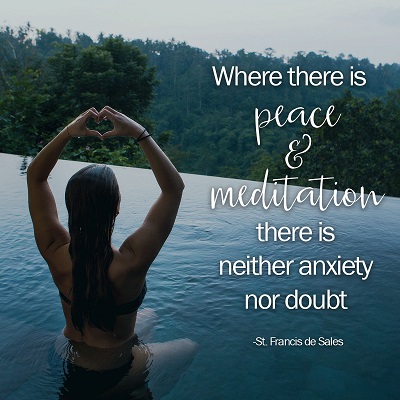 There are many treatments available for anxiety; some of them require pills or talk therapy, while others use herbal remedies and special exercises like yoga, Tai chi, and Qi dong to relieve anxious systems. The latter choices have been around for centuries and are based on ancient traditional Chinese medical practices.
There are many treatments available for anxiety; some of them require pills or talk therapy, while others use herbal remedies and special exercises like yoga, Tai chi, and Qi dong to relieve anxious systems. The latter choices have been around for centuries and are based on ancient traditional Chinese medical practices.
Conventional Medicine
Anxiety symptoms can drive you to seek the advice of a conventional medical doctor, who will examine you and will try to determine if you have a physical cause for your anxiety, such as heart disease or thyroid disease. If the anxiety seems unrelated to physical events, the doctor is left with several choices.
Most conventional doctors turn to anti-anxiety medication, such as Xanax, Klonopin, Valium, or Ativan. These benzodiazepines are supposed to be used only for a short duration as they are very addictive and people tend to relapse into anxiety when the medication is stopped. They have to go back on the medicine, sometimes for the rest of their lives.
The doctor may also request that you attend some type of talk therapy. There you will talk about the sources of your anxiety and make attempts to de-stress your life to be less anxious. This kind of therapy can be short-term or long-term, depending on the cause and severity of your symptoms.
Some conventional doctors are familiar with holistic approaches to addressing anxiety and may recommend acupuncture, massage, yoga, or relaxation exercises to augment the treatment you are already receiving from the doctor. Unfortunately, most conventional doctors will not go as far as recommending holistic practices.
Holistic Approaches
Holistic medicine is a practice that treats the patient as a whole, instead of simply addressing the symptoms of a specific disease or condition.
A holistic practitioner will work with the patient with the ultimate goal of restoring complete balance to all parts of the patient’s life, which includes addressing the body, mind, soul and the environment in which the patient lives.
This type of approach facilitates great success for people with any type of ailment and encourages the ultimate results in improved overall wellbeing and wellness.
Holistic practitioners may recommend any number of various all-natural therapies that work in concert with and complement conventional medical care.
There are many such alternative therapies to addictive medication for anxiety. Some include ancient Eastern medicine techniques, such as, Tai chi, yoga, Qi Gong, acupuncture, and meditation.
Visualization and exercise are other all-natural and very effective methods in reducing anxiety. These practices have been shown to reduce anxiety levels without resorting to medication.
Some alternative, holistic ways to counteract anxiety include these:
- Herbal remedies. These include remedies such as kava and German chamomile tea, which are used all over the world for relaxation and for a reduction in anxiety. Find a reputable herbalist or a holistic practitioner with knowledge of herbs for best results. Herbs are powerful plants and can interfere with each other and prescription medication, so safety considerations are very important.
- Yoga. The practice of yoga involves combining breath with different poses designed to improve balance and flexibility along with relaxation of the mind. Yoga has more than 50 different health benefits, and can go a long way in reducing anxiety.
- Tai Chi. Tai Chi is an ancient Chinese form of exercise that involves going from pose to pose, concentrating on the breath. This discipline looks much like a slow motion dance that can reduce stress and anxiety.
- Qi Gong. Because the Chinese believe the center of anxiety is in the heart, they use the practice of Qi dong in order to increase the flow of vital energy called “qi” to the heart. It involves having a practitioner work on mobilizing the qi while you learn techniques to keep the qi flowing when you practice it at home.
- Visualization. This is a form of meditation that allows you to travel in your mind to a calm and peaceful place. It brings a peaceful state of being, reducing anxiety in the process.
- Meditation. Meditation focuses on breathing in specific ways that relax the muscles of the body and opens your mind so it stays in the present moment, free of the regrets and fears of the past and future. With practice, a meditative state can be achieved anywhere and at any time, and even a few minutes a day can go a long way in reducing anxiety and stress that can exasperate it.
- Acupuncture. Acupuncturists use fine, painless needles to stimulate certain body acupressure points that are associated with anxiety. You can have relief after one session or from several sessions, depending on how severe your symptoms are.
Holistic methods of controlling anxiety have thousands of years of practice, with most of the therapies stemming from the Far East. Today, more and more people seek medical care from holistic practitioners in order to utilize the many natural therapies available to treat various medical conditions or to simply improve their wellbeing.
While medications for anxiety can leave you with withdrawal symptoms and addiction, holistic methods are non-addictive and often work as well as the prescription medications when practiced faithfully.






